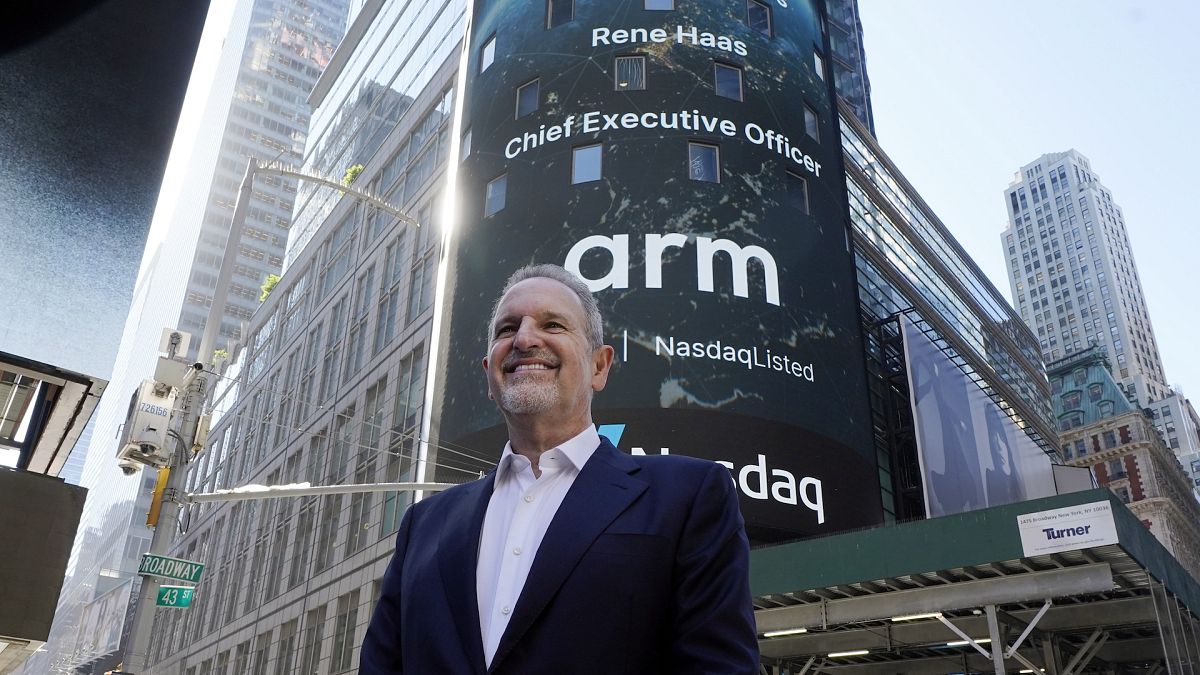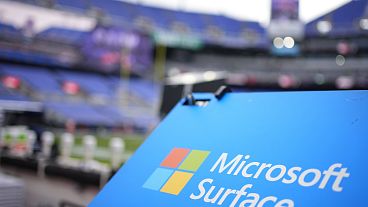Arm reported earnings for the June quarter that well surpassed market expectations. However, the firm provided flat guidance for the fiscal year 2025, which caused a sharp sell-off in its shares in after-hours trading.
British chip designer Arm has announced its first-quarter results for the fiscal year 2025, which comfortably exceeded analysts' estimates. However, its shares plunged more than 10% in extended trading hours due to tepid guidance. Despite this, Arm's stocks have shown robust performance, rising 96% this year as of the close on Tuesday. The artificial intelligence (AI) boom is expected to continue to bolster its chip sales in the new fiscal year ahead.
Arm holds a monopoly position in the market, supplying semiconductor design platforms to most smartphones worldwide. The company debuted on the Nasdaq, joining the global AI race through an initial public offering in September 2023 and raising $4.9bn (€4.5 bn). However, the Japanese conglomerate SoftBank still owns 90% of Arm's stakes.
Growth decelerates
Arm reported revenue of $939m (€867m), up 39% year-on-year in the June quarter, well above the estimated $905.4m. However, this growth rate decelerated from the 47% increase in the previous quarter. Earnings per share were recorded at 40 US cents (€0.37), significantly higher than analysts' expectations of 34 US cents.
The company provided guidance for revenue of between $3.8bn (€3.5bn) and $4.1bn (€3.8 bn) for the fiscal year 2025, implying flat annual growth. Investors interpreted this outlook as a lack of confidence in maintaining its high growth pace. Arm's performance has struggled to meet investors' expectations given its high valuations. The company has a Price-to-Earnings (P/E) ratio of 497, much higher than Nvidia's 68, which reported a 262% revenue growth in its April quarter.
Notably, the Royalty unit lost momentum in the June quarter, with segment revenue rising 17% year-on-year compared with a 37% growth rate in the previous quarter. Royalty is the fee Arm charges for each of its designed chips sold. The largest driver of the segment’s growth was "increased penetration of Armv9 combined with the overall market's recovery and a higher premium tier mix compared to a year ago". However, the Internet of Things (IoT) segment saw weakness with a year-on-year decline due to continued inventory correction in the broader market.
Licence and other revenue hit a record high, surging by 72% from a year earlier. This was due to customers' long-term commitments to using Arm's "power-efficient" technology. Arm gained two more long-term licensees, bringing the total to 33 in the June quarter. Additionally, the Arm Flexible Access programme benefited from its introduction to China, where it was previously unavailable.
Arm shifts focus to data center servers
A strategic shift for the company is that it has stopped reporting the number of Arm-based chips that were shipped. CEO Rene Haas explained in the shareholder letter: "As we shift our focus to higher-value, lower-volume markets such as data center servers, AI accelerators and smartphone applications processors, the number of chips reported as shipped is less representative of our performance as the growth in royalty revenue is concentrated in a smaller number of chips."
Arm indicated that its energy-efficient computing solutions are in high demand due to the substantial energy requirements in the AI infrastructure built by tech giants such as Microsoft, Alphabet, and Amazon. Ten of the world's largest hyperscalers use Arm-based chips in their data centres. Arm asserts that it provides the world's largest compute ecosystem, which can accelerate the development of data centre chips while meeting the performance and efficiency needs of AI applications. CEO Rene Haas stated: "As the energy needs of AI continue to escalate, so does the demand for the high-performance, power-efficient Arm compute platform."















